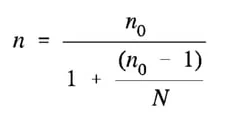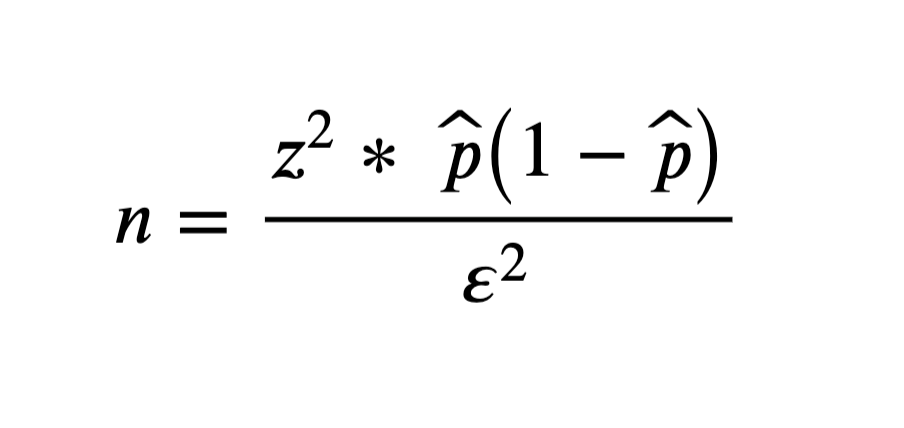Sample Size Calculator
To get the result, fill out the calculator form and press the Calculate button.
The Significance of Sample Size in Research
The size of the sample plays a pivotal role in research as it directly impacts the precision and dependability of study findings. A larger sample size generally enhances the reliability and accuracy of results by minimizing the potential for error and bolstering the statistical robustness of the research. Conversely, a smaller sample size can introduce bias or render results inconclusive.
For instance, consider a scenario in which a researcher aims to gauge the prevalence of a particular disease within a population. A limited sample size in such a study may fail to accurately mirror the actual prevalence rate within the broader population, while an expanded sample size substantially elevates accuracy and the representativeness of findings.
Sample Size Finite Formula

- n0 is the sample size
- N is the population size
Sample Size Infinite Formula

- z denotes to population Sample Size
- p is the percentage estimate of the population
- ei is the margin of error
Other Calculators
- Standard Deviation Calculator
- Variance Calculator
- Mean Calculator
- Mode Calculator
- Median Calculator
- Arithmetic Mean Calculator
- Harmonic Mean Calculator
- Geometric Mean Calculator
- Mean Absolute Deviation Calculator
- Covariance Calculator
- Correlation Coefficient Calculator
- Sum of Squares Calculator
- Linear Regression Calculator
- Quartile Calculator
- Quadratic Regression
- Five Number Summary Calculator
- Expected Value Calculator
- Chebyshev's Theorem Calculator
- Sample Size Calculator
- Z Score Calculator
- T Test Calculator
- Probability Calculator
- Normal Distribution Calculator
- Confidence Interval Calculator
- Coefficient of Variation Calculator